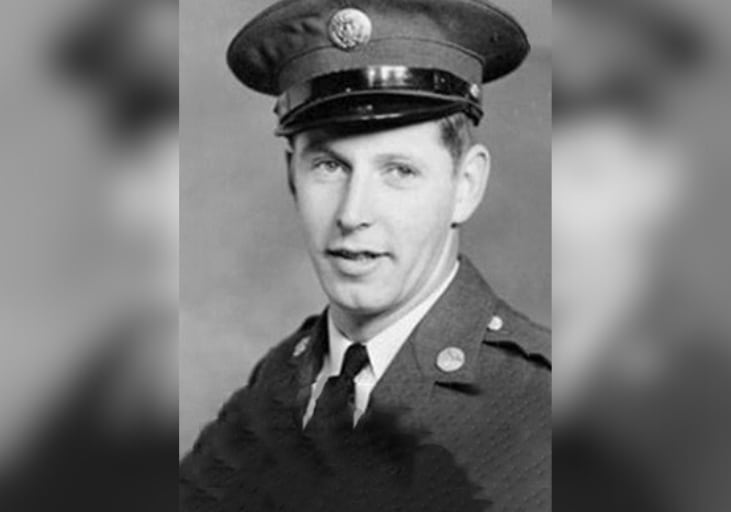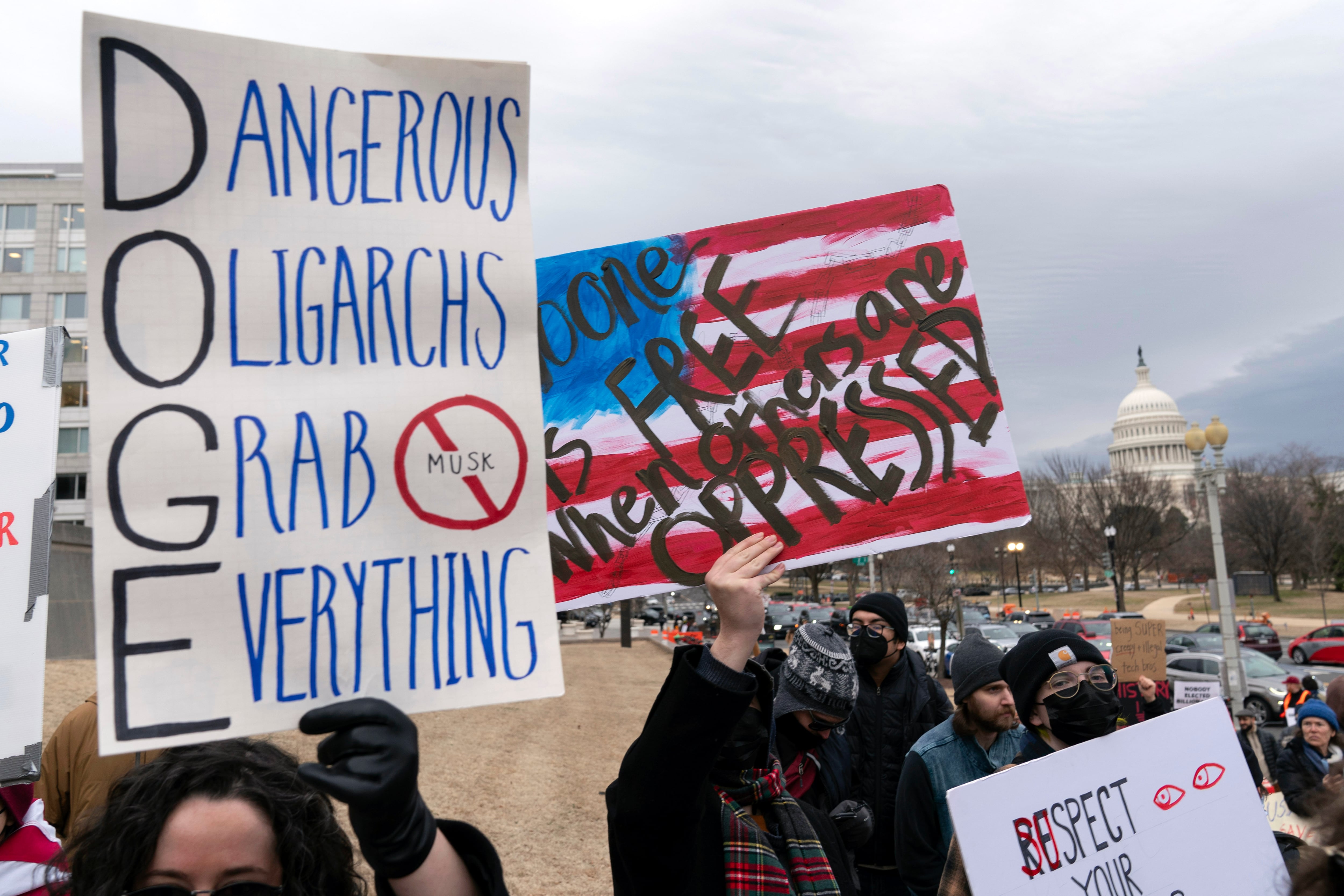His unit decimated by North Korean forces, Pfc. Edward Grady Halcomb and a handful of fellow soldiers, all out of ammunition, found themselves hiding out in a schoolhouse as enemy forces lobbed grenades at their position.
The 19-year-old medic and his compatriots picked the grenades up and lobbed them back. Eventually, the small group would surrender to the North Koreans, becoming some of the first U.S. prisoners of the Korean War.
Halcomb's POW Medal citation notes simply that he was captured on July 27, 1950, and held prisoner until Oct. 20 of that year — offering no details on his service during that time, which included providing much-needed aid to more than 370 fellow soldiers forced to march from Seoul to Pyongyang.
Halcomb would relate some of those actions to a retired Air Force colonel writing a book about Korean POWs including the author's father, who died in captivity. Four years after the book's printing, and more than 65 years after Halcomb's ordeal, the former POW, retired soldier and "tremendous war hero," as one lawmaker put it, will receive the Distinguished Service Cross.
It took an act of Congress to get around the award's statute of limitations. And not just any act: The measure was part of the 2016 National Defense Authorization Act, signed last month by President Obama after an initial veto.
Halcomb, now 84, wasn't worried.

Edward Grady Halcomb enlisted before he turned 18, went AWOL twice, was discharged, then enlisted again.
Photo Credit: Courtesy of W. Thomas McDaniel Jr.
McDaniel’s book, "The Major," identifies Halcomb and his fellow POWs as "[t]he most forgotten men in the ‘Forgotten War.’" Figures vary, but about 4 in 10 of U.S. troops captured during the conflict didn’t survive — a higher percentage than that of U.S. service members who died in Japanese captivity during World War II.
Halcomb would spend his time as a prisoner trying to prevent fellow captives from becoming part of that statistic. After surviving the battle in the small town of Anui — 235 U.S. troops began the fight, McDaniel’s book states; (about 20 remained at its end) — the teenager and his fellow prisoners were marched to Taejon and eventually reached Seoul, where they joined others for a three-week, 250-mile march north to Pyongyang.
Eighty men died en route. Halcomb, who'd been with B Company, 1st Battalion, 29th Infantry Regiment, spent much of his time keeping as many of the prisoners on the move as he could.
"Some of the other medics were older, but he was the man," McDaniel said. "They would rely on his judgment to see who was loafing, who was sandbagging it — of course, all of them were hurt, it was just a matter of degree — he would decide who would ride on the ox carts that they got at one point. That was a big deal, for the officers to give him that kind of authority."
The march reached Pyongyang in mid-October. Prisoners continued dying. Halcomb and four others were "put on the burial detail," he recalled, digging graves in a nearby Christian village.
The group learned from villagers that U.S. forces were nearing their position, and facing another northward march, decided to make their move.

Edward Grady Halcomb will receive a Distinguished Service Cross for his heroism during the Korean War.
Photo Credit: Jan Ragan
Halcomb downplayed his heroics. He focused on what happened to the men who remained under guard.
"Five days later, they took all the prisoners who hadn't escaped and put them in the Sunchon tunnel," he said. "They told them they were going to get them some food."
"They lined them up, and then they got machine guns and started shooting," he said.
Sixty-eight men died in the massacre, according to a 1954 Senate report on war atrocities.
Late recognition
During research for his book, McDaniel found a 1951 letter from Smith to the general headquarters of U.S. Far East Command, recommending the author's father for a Medal of Honor (he would posthumously receive a Distinguished Service Cross) and seven others, including Halcomb, for the DSC, the military's second-highest valor award.
Halcomb "laboriously put in many long hours tending to the sick, constantly exposed to the many diseases rampant in the group," Smith wrote in the recommendation, which appears in McDaniel's book. "He received no extra food, yet often shared his food with the sick. He physically supported many of the sick as the group neared Pyongyang, thereby saving many from execution."
The recommendation was lost to history. Halcomb remembered Smith writing him to say he'd been put in for a "high award," but the career soldier went about his duties minus the recognition. He retired in 1968 as a sergeant first class, making good on a promise to his mother that his second stint in the service would stick — he initially enlisted underage and was discharged after twice going absent without leave. He later found a different recruiter and joined again.
He got into the gas-station business after leaving uniform, and got out before the energy crisis in the 1970s. He later owned a tackle shop. He gave up fishing after retirement, he said, "when it became a chore."
He kept nearly all his war stories to himself, daughter Jan Ragan said, until McDaniel reached out as part of his research. McDaniel described the discussions between the former POW and the son of a fallen POW as "very emotional." They stretched over about a year and a half and led McDaniel to pursue the DSC, first reaching out to then-Sen. Daniel Akaka, D-Hawaii.
Later, Halcomb's then-congressman, Republican Rep. Dennis Ross of Florida's 15th district, would be asked to assist.
A caseworker "just unraveled this incredible story about this tremendous war hero," Ross said.
Ross said then-Army Secretary John McHugh "personally affirmed" that the service would approve the honor if time limitations involving DSC awards were waived: Federal law mandates that the DSC be awarded within five years of the action it honors or, if a recommendation has been lost, within two years of its discovery.
Ross introduced a bill to lift the time limits in March. It never left the House Armed Services Committee. He credited two fellow Florida legislators for their assistance in getting it into the final NDAA: – Republican Rep. Richard Nugent and Democratic Sen. Bill Nelson.
All seemed well until Oct. 23, when President Barack Obama vetoed the legislation over unrelated spending issues. About a month later, a resurrected 2016 NDAA, still with Halcomb mentioned by name in Section 581, became law.
"I sort of figured they'd get things back together, and they did," Halcomb said.
Despite McHugh's departure, an Army spokesman confirmed that the service intends to approve the award, though details on the time and place of the ceremony weren't yet in place.
"His story is just phenomenal," Ross said. "The makeup of this man is incredible, and I'm so delighted that our staff and I have been able to help him obtain this long-overdue recognition.
"This is one of the best parts of the job," he said.
Kevin Lilley is the features editor of Military Times.




